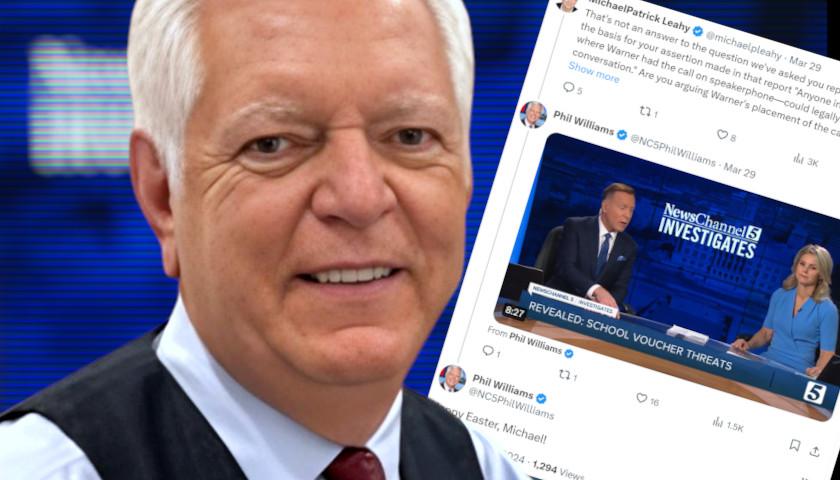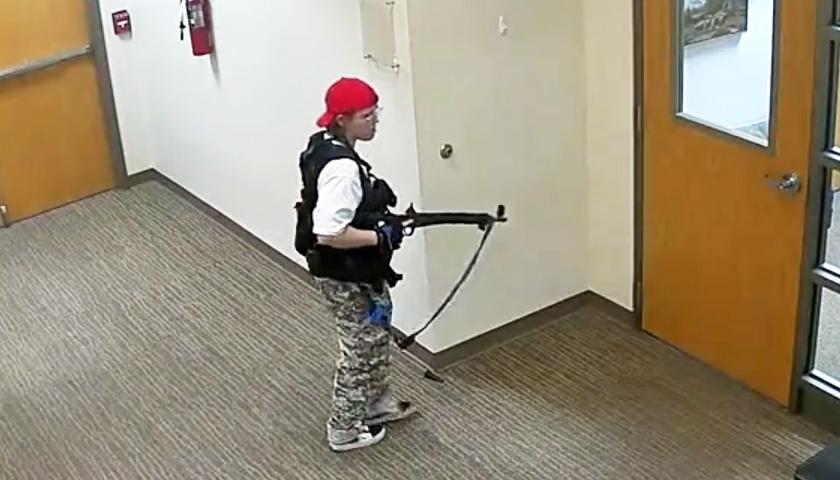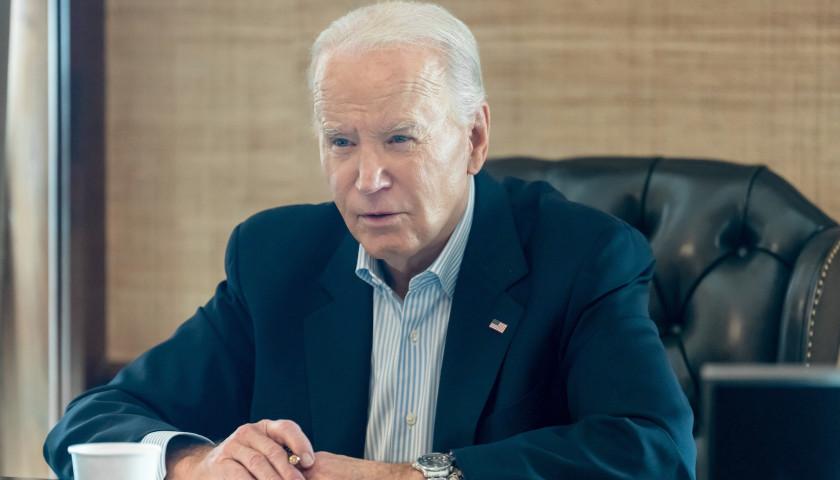Live from Music Row, Monday morning on The Tennessee Star Report with Michael Patrick Leahy – broadcast on Nashville’s Talk Radio 98.3 and 1510 WLAC weekdays from 5:00 a.m. to 8:00 a.m. – host Leahy welcomed Nashville mayoral candidate Jim Gingrich in studio to discuss his disfavor with the current Titans Stadium deal, Nashville’s growth, and the effect on taxpayers.
Leahy: In studio Jim Gingrich, he’s run for mayor. He’s lived here for five years, right? You registered to vote in 2018 and disputed the characterization of carpet bagger. He also has some policy issues that he wants to talk about. You oppose the stadium deal, right?
Gingrich: I do. I oppose the deal that’s currently structured for the stadium.
Leahy: Okay. So what would you do if you were the mayor right now to stop that deal?
Gingrich: I wouldn’t be moving forward. I wouldn’t have structured the deal that we currently have. The fact is that we are providing more money to a billionaire than any city that has chosen to provide support for an NFL stadium by a large amount.
And the fact is, stadiums create significant wealth for those who own NFL teams, which is why you don’t see other cities provide the amount of money that we’re choosing to provide.
Leahy: I’ve made the argument that the model should be like the SoFi Stadium in LA which is all privately financed.
Gingrich: Yes it is. And the reason they can pull that off is that, again, how much money a stadium like this adds to the net worth of a team. This is a legacy that we’re talking about over $100 million a year for the next 35-plus years that are going to go into this stadium. It’s a legacy that we’re not only leaving for our children, but we’re also leaving it for our children’s children.
Leahy: How would you restructure the deal? Or would you just kill the deal?
Gingrich: Look, I think there’s a lot of room to negotiate on this deal. Other cities have proven it. If we just had the same deal as the next worst deal, is a couple of billion dollars in savings for the taxpayers of this city. I don’t think that we should be out-negotiated by cities that are not as great as Nashville.
We have so much going for us. There are two-plus million people in the metropolitan area. We are growing. We are vibrant. We had 300,000 people that attended an NFL draft. This is the place that the NFL wants to be.
Leahy: I guess just in a nutshell what couple of changes would you make that would put you in favor of the deal, or are there none?
Gingrich: No, let’s just assume that we were looking at a deal similar to what was negotiated in Nevada and they were trying to entice the Raiders to move. That would free up, as I said, a couple of billion dollars.
One of the things that haven’t been talked about is the prospect of gambling in the Titan Stadium. We don’t have the authority in the current deal to even approve that, let alone get any revenue out of that.
Leahy: Under the current deal there is going to be gambling in the stadium?
Gingrich: If gambling is approved in the state, the Titans can move forward with that.
Leahy: So what would your negotiating position be? To allow gambling? State revenue from the gambling?
Gingrich: This is all about protecting the Nashville taxpayer. And we should be looking at this as how do we, if we are going to partner with the Titans and we are going to create significant wealth for the Titans, we should also be creating significant wealth for the taxpayers and the residents who live in the city.
Leahy: So it’s a bad deal. There are some circumstances under which if they changed it, it would make sense in your view.
Gingrich: Yes, yes, yes. This is a wealth-creation event for Titan’s ownership. And they should be negotiating just as hard as they. Our job though, from a leadership standpoint should be to negotiate the very best deal for the people who live here.
Leahy: So did Mayor Cooper do a bad job on the negotiations?
Gingrich: In July of last year, I wrote a letter to the council explaining what I thought was happening. I, in turn, also published an op-ed in The Tennessean explaining what I thought was happening. What actually came out is worse than what my understanding was then.
Leahy: Got it. So you think it’s a bad deal. What would be your other main priority as mayor? What would you do, Jim?
Gingrich: Look, we are growing as a city. The issue I think, that many of us struggle with is that growth feels unrestrained and unplanned in a way because we see what that growth is causing us. It’s harder.
It’s cost more to live here. It’s changing our neighborhoods. We don’t have the infrastructure we need. We have crime issues. We have education issues, and we talk about these things, and yet we don’t get anything done.
Leahy: What would be your number one thing that you…
Gingrich: Let me just finish. Then when you look at it and say, wait a second. As a city, we’re spending our budget in the current year is we are spending 60 percent more per resident. So just for population growth, 60 percent more per resident than we spent 10 years ago. And yet all of these things we talk about and we look around and say, wait a second, what are we getting for that? We need to start getting things done as opposed to just talking about them.
Leahy: There’s another big problem. The unfunded healthcare liability for retired city workers. Do you have a plan for that?
Gingrich: We have made progress on that in the current administration, hats off to Mayor Cooper. But again, this is all part of how we ensure for our kids that we have a sound fiscal situation in Metro. And that we get something back for the dollars that we give Metro in terms of our taxes.
Leahy: The other question is, the schools here in Metro Nashville Public Schools are terrible. Mayor Cooper says all I can do is approve or disapprove the budget. Would you have a different attitude toward improving the public schools here?
Gingrich: So let me give you a statistic and then I’ll answer your question. People who are born poor are more likely to remain poor than they are in 80 percent of the cities in the United States. If I think about my history like my mom didn’t go to college, her dad was a sheet metal worker.
She couldn’t afford to go to college. My dad did go to college. He worked his way through college. Raised by a single mom, found his way into college. They built a better life than their parents. I also worked my way through college. My dad lost his job just as I was starting college. And so I was able to get through on a combination of what I was able to make.
Leahy: What kind of jobs did you have in college?
Gingrich: Oh, I started working in a factory.
Leahy: What’d you make?
Gingrich: Six dollars an hour.
Leahy: What products did they make?
Gingrich: Oh, it was an industrial bread factory.
Leahy: Was it in like in Ithaca itself proper?
Listen to today’s show highlights, including this interview:
– – –
Tune in weekdays from 5:00 – 8:00 a.m. to The Tennessee Star Report with Michael Patrick Leahy on Talk Radio 98.3 FM WLAC 1510. Listen online at iHeart Radio.
Photo “Jim Gingrich” by Jim Gingrich. Background Photo “Titans Stadium” by Hector Alejandro. CC BY 2.0.




